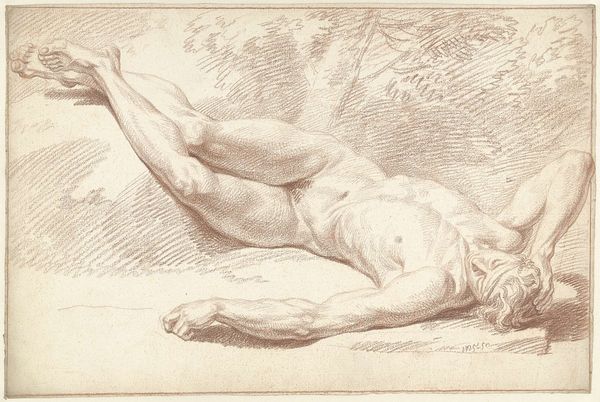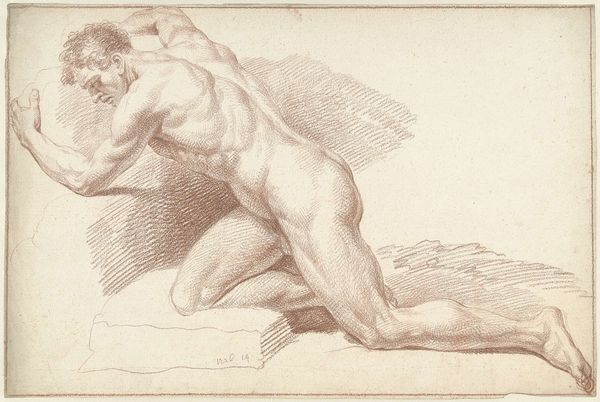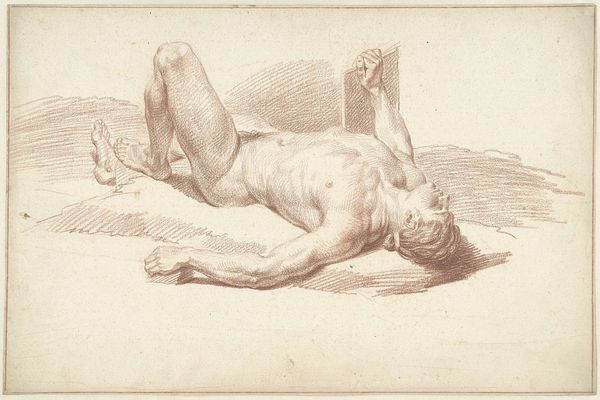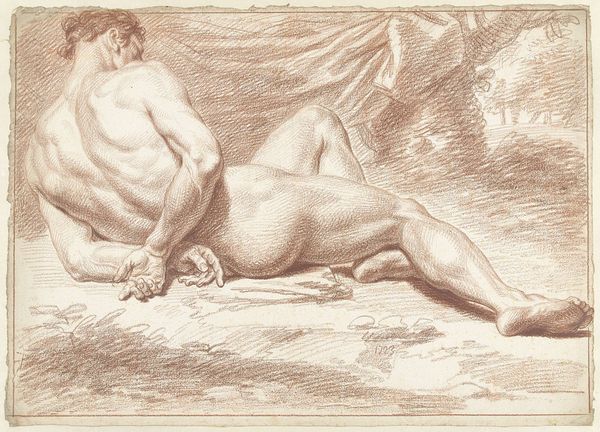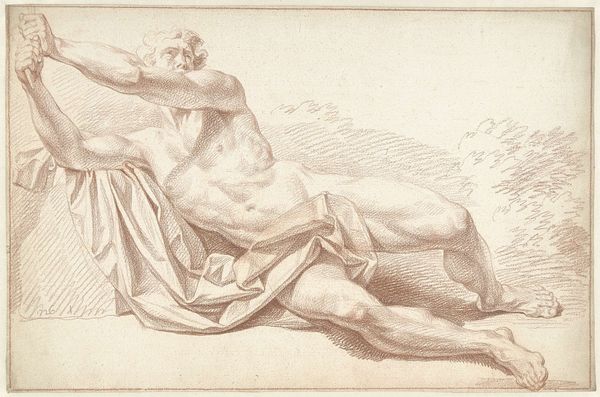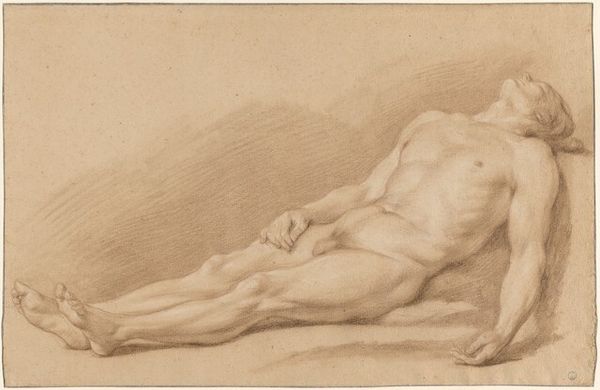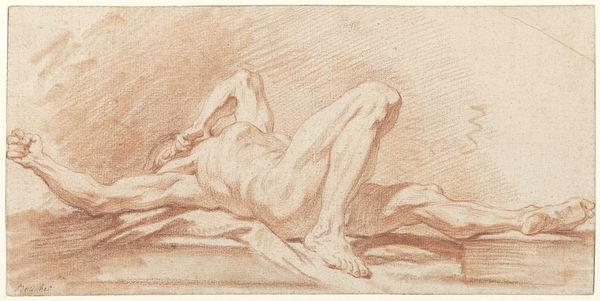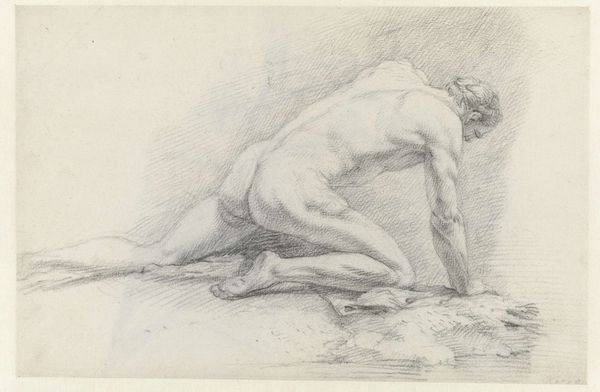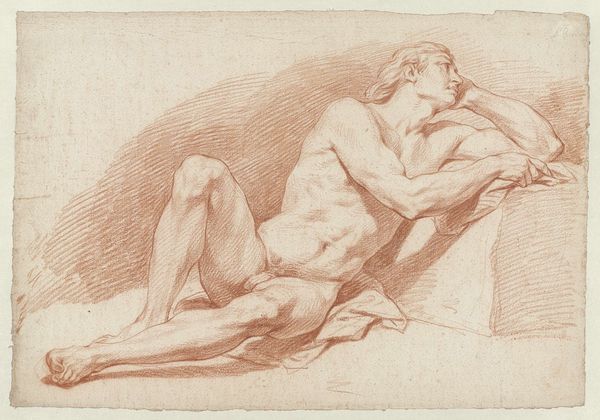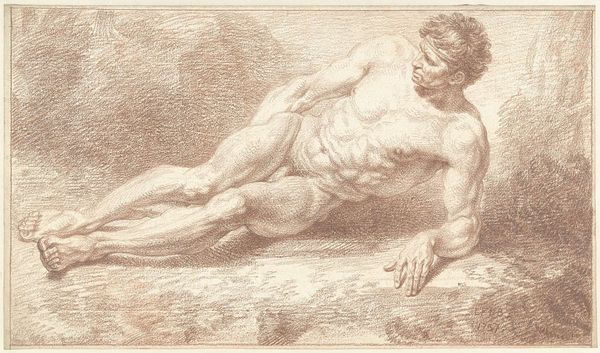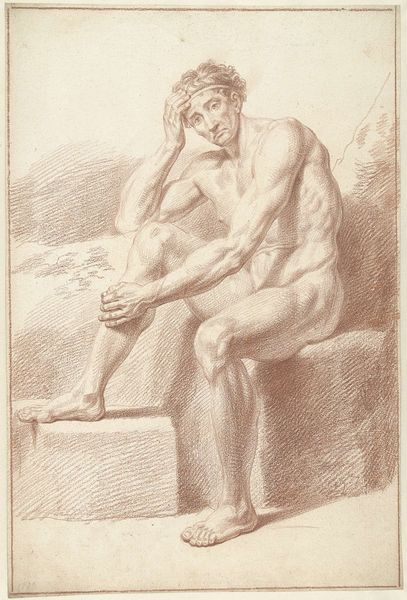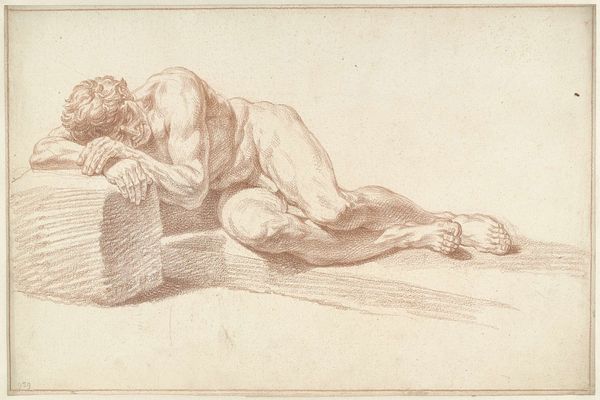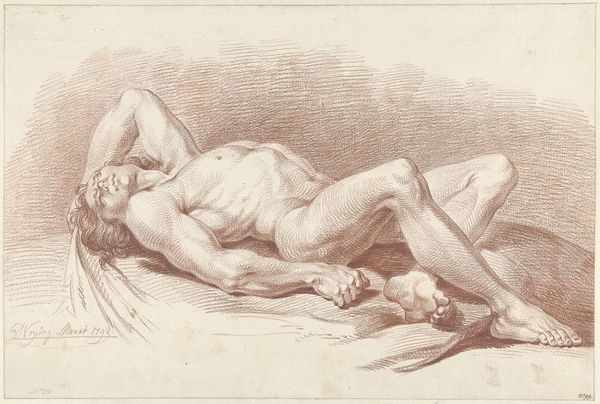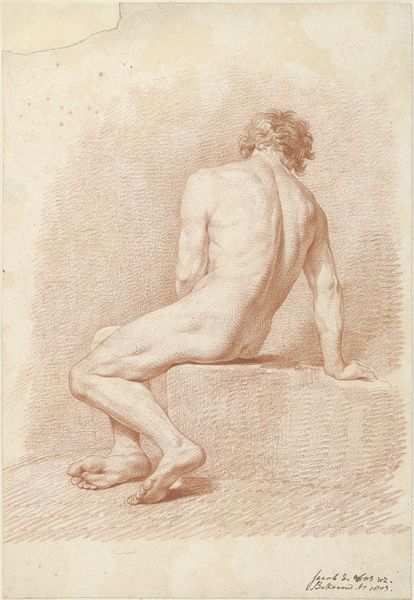
drawing, pencil
#
pencil drawn
#
drawing
#
baroque
#
figuration
#
pencil drawing
#
pencil
#
genre-painting
#
academic-art
#
nude
Dimensions: height 315 mm, width 476 mm
Copyright: Rijks Museum: Open Domain
Curator: Editor: Here we have Louis Fabritius Dubourg's "Mannelijk naakt, liggend op de rug" from 1725, held in the Rijksmuseum. It’s a nude male figure drawn in pencil. What strikes me is the almost clinical detail, especially in the rendering of the musculature. What do you see in this drawing? Curator: The pencil itself interests me. Consider its origin: graphite mined and processed, wood cut and shaped. Then, its application – the repetitive, almost labored strokes. This wasn’t just about depicting form, but a material process, highlighting the intersection of art and craft. Editor: So, the medium isn’t just a tool, but a reflection of the socio-economic context of its production and use? Curator: Precisely. Look closely at the shading; it’s built up layer upon layer. Is this solely for aesthetic effect, or does it represent the physical act of creation, the time invested, the maker’s hand? How does that connect to our modern understanding of labour and its value? Editor: It makes you think about the unseen work, doesn't it? The raw materials, the artisanal skill required to even produce a pencil in the 18th century… something we totally take for granted now. I suppose seeing it as “academic art” somewhat hides that. Curator: Exactly. And note the "genre painting" tag. Was this nude male made available for academic study? How do you interpret it within the material context of artistic training and anatomical study of the time? Is that significant? Editor: Absolutely. Thanks, seeing it this way has totally shifted my understanding of how art reflects its material reality and production process! Curator: Indeed. Examining the object’s construction allows us to examine the means of production and making. Hopefully it shifts perspectives for listeners, as well!
Comments
No comments
Be the first to comment and join the conversation on the ultimate creative platform.
